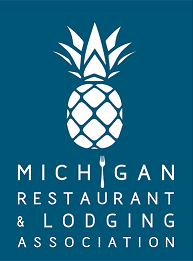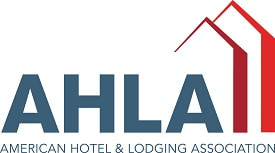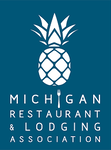Food Allergens: Improving Systems and Procedures

By: Dr. JaeMin Cha, PhD
In broad terms, safe food means freedom from biological, chemical, and physical contaminations. These contaminants have several routes from farm to fork that can potentially make a food product unfit for human consumption. Foodborne illness is caused by disease-causing microorganisms, chemicals, and toxins as well as naturally-occurring ingredients presenting problems for guests with food allergies.
The MRLA Magazine October 2019 issue highlighted why the concept of active managerial control (AMC) should be applied to the management of food allergens. Part Two of food allergens discusses how to implement food allergen practices effectively.
Follow Allergens Training Requirements
Both service and kitchen staff need to be properly trained to avoid problems caused by food allergens. Identifying allergenic foods and communicating potential issues to guests are important to reducing potential liability. To implement AMC, it is important to study applicable state laws that guide the development and implementation of procedures, processes, and protocols to proactively manage food allergy issues. Three main rules all food service operators in Michigan should follow are:
Improving Systems and Procedures
Many steps must be taken by food service staff to protect guests with food allergies. In the food allergy educational poster, four actionable items are highlighted if a guest informs a manager that someone in their party has a food allergy. Here are four Rs that all staff members should know:
Creating a food allergens program should begin with checking ingredients carefully. For example, do you have a proper system to easily pull out all ingredient lists or recipes? Food service operators should work closely with food distributors to develop detailed allergens checklists, and then have comprehensive allergens training programs for all staff. Most of the POS systems can be integrated to update these ingredient lists automatically. Many foodservice operators are increasingly utilizing the updated POS system that includes the real-time allergen alerts and some leading foodservice operators proactively share allergens information and ingredient lists on the restaurant’s website, mobile app or a tablet menu system. These tools not only enable staff members to share complete and correct information with guests, but also more importantly allow guests with allergies to build their own customized menus and feel confident in their choices.
While there is no cure for food allergies, food service operators can take proactive steps to prevent serious health consequences for their guests. Although allergen programs should be developed and initiated by a top management or owner, each staff member plays an important part in protecting the health and safety of guests. Improving systems and procedures helps to meet and exceed guests’ expectations.
References
Cichy, R.F. and Cha, J. (2019) Food Safety and Quality Management, Third Edition, published by National Restaurant Association and American Hotel & Lodging Educational Institute
Allergen Training Requirement for Certified Food Managers: Frequently Asked Questions. Michigan Department of Agriculture and Rural Development; available at https://www.mrla.org/uploads/1/0/6/3/106335151/allergen_faqs_496446_7.pdf
In broad terms, safe food means freedom from biological, chemical, and physical contaminations. These contaminants have several routes from farm to fork that can potentially make a food product unfit for human consumption. Foodborne illness is caused by disease-causing microorganisms, chemicals, and toxins as well as naturally-occurring ingredients presenting problems for guests with food allergies.
The MRLA Magazine October 2019 issue highlighted why the concept of active managerial control (AMC) should be applied to the management of food allergens. Part Two of food allergens discusses how to implement food allergen practices effectively.
Follow Allergens Training Requirements
Both service and kitchen staff need to be properly trained to avoid problems caused by food allergens. Identifying allergenic foods and communicating potential issues to guests are important to reducing potential liability. To implement AMC, it is important to study applicable state laws that guide the development and implementation of procedures, processes, and protocols to proactively manage food allergy issues. Three main rules all food service operators in Michigan should follow are:
- At least one certified food safety manager at each food service establishment must complete additional allergens training approved by the Michigan Department of Agriculture and Rural Development (MDARD) with some exceptions.
- Food service establishments must inform guests with a notice on menus and menu boards (or a window sticker) that guests need to inform servers of food allergies before placing their order. Proactive managers need to communicate guests’ questions effectively and accurately to ensure that food allergens are absolutely avoided.
- To enhance food allergy awareness, food service establishments are required to display a food allergy educational poster in the staff areas. Management should identify the staff member on each shift who can respond to food allergy-related questions.
Improving Systems and Procedures
Many steps must be taken by food service staff to protect guests with food allergies. In the food allergy educational poster, four actionable items are highlighted if a guest informs a manager that someone in their party has a food allergy. Here are four Rs that all staff members should know:
- Refer the food allergy concern to the chef, manager, or person in charge.
- Review the food allergy with the guest and check ingredient labels.
- Remember to check the preparation procedures to avoid any potential cross-contact.
- Respond to the guests and inform them of how you are going to address their concerns.
Creating a food allergens program should begin with checking ingredients carefully. For example, do you have a proper system to easily pull out all ingredient lists or recipes? Food service operators should work closely with food distributors to develop detailed allergens checklists, and then have comprehensive allergens training programs for all staff. Most of the POS systems can be integrated to update these ingredient lists automatically. Many foodservice operators are increasingly utilizing the updated POS system that includes the real-time allergen alerts and some leading foodservice operators proactively share allergens information and ingredient lists on the restaurant’s website, mobile app or a tablet menu system. These tools not only enable staff members to share complete and correct information with guests, but also more importantly allow guests with allergies to build their own customized menus and feel confident in their choices.
While there is no cure for food allergies, food service operators can take proactive steps to prevent serious health consequences for their guests. Although allergen programs should be developed and initiated by a top management or owner, each staff member plays an important part in protecting the health and safety of guests. Improving systems and procedures helps to meet and exceed guests’ expectations.
References
Cichy, R.F. and Cha, J. (2019) Food Safety and Quality Management, Third Edition, published by National Restaurant Association and American Hotel & Lodging Educational Institute
Allergen Training Requirement for Certified Food Managers: Frequently Asked Questions. Michigan Department of Agriculture and Rural Development; available at https://www.mrla.org/uploads/1/0/6/3/106335151/allergen_faqs_496446_7.pdf




